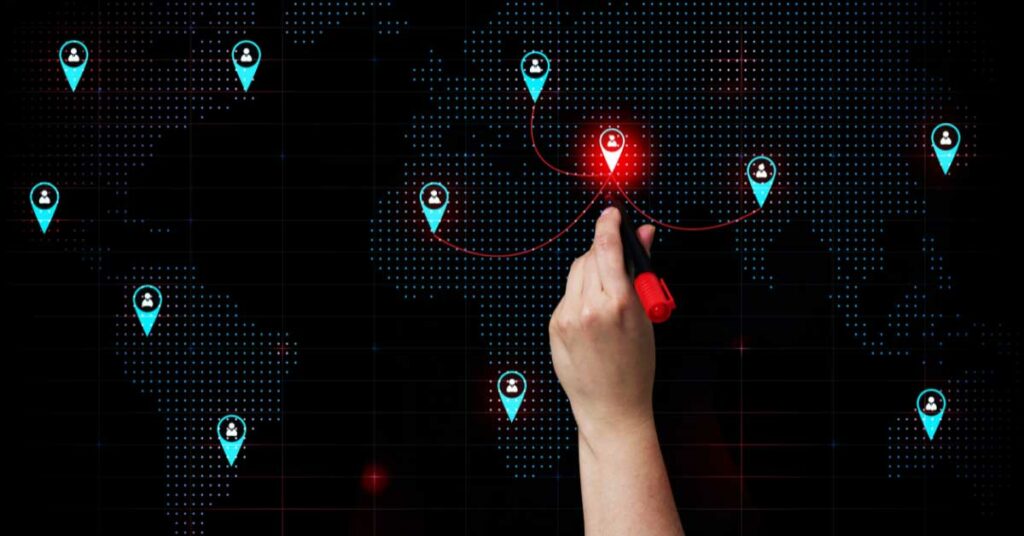The future of companies: Remote Work
Is remote work the future of business? It sure has been like it for the past few years since the start of the pandemic. Yet, hundreds of companies are now starting to open the doors of their offices and making employees go back.
Why is the return of the office so dreadful for many? Why are companies calling their employees to come back to a physical space? Is remote work the future of business, then?
In this episode of Bootstrapers, Gwenn Aspen is joined once again by Matt Tompkins, owner, director, and leader of a remote team at Two Brothers Creative, who has integrated a fully remote team.

Why are Companies Stopping Remote Work?
Despite the demonstrated success of remote work in recent times, why are some companies reverting to traditional office environments?
Well, the decision can be motivated by many things; for starters, specific roles require a physical presence due to operational needs, such as handling specialized equipment or dealing with tangible aspects of the business that cannot be managed remotely.
However, the main explanation for this shift back to offices often lies in antiquated leadership mindsets and a penchant for micromanagement.
Listen to the full episode.
Old-fashioned leaders still believe that peak productivity can be found in office spaces; they still feel the urge to micromanage and the need to have “a real office.” They may feel an inherent need to oversee operations closely and maintain a tangible, ‘real’ office environment.
This can’t be more wrong! Remote working actually increases productivity and time efficiency.
Nostalgia: Your Worst Enemy
Nostalgia can be a potent force that drives our decisions and shapes our behaviors, often more so than we consciously realize.
The concept of going to the office, working with colleagues in person, and participating in traditional work routines is deeply ingrained in many of us; it’s all over TV, what we saw growing up. It’s what we’re accustomed to, and this familiarity breeds a sense of comfort and security.
Yet, it’s essential to remember that just because something is familiar doesn’t necessarily mean it’s the most effective or efficient model.

Is Remote Work as Effective as In Office Work? The Benefits
While some people might argue that remote work isn’t effective, after a few years of remote working, a lot of studies have shown that it is actually much more productive than in-office work.
A study by Stanford University revealed that remote work can increase productivity by an impressive 77%.
This surge in productivity can be attributed to fewer distractions and interruptions from colleagues, reduced office politics, and the elimination of time-consuming commutes.
Remote work also allows for more flexibility. Employees have the freedom to work from anywhere, at any time, making it easier for them to balance their professional and personal lives.
Improve Time Efficiency With Remote Work
Additionally, One of the key benefits of remote work is its potential to eliminate distractions commonly associated with traditional office settings.
By working remotely, employees are able to sidestep the unnecessary small talk and useless conversations that often consume valuable time during the workday.
Furthermore, remote work eliminates the waste of materials often seen in office settings, such as paper, ink, and other supplies. It also avoids commutes that can take hours.
This not only reduces the company’s overhead costs but also contributes to a more sustainable and eco-friendly work environment.

Happier Team with Remote Work
Working remotely can significantly enhance the happiness quotient of your team. When employees have the flexibility to work from their preferred locations, it inevitably leads to an improved work-life balance.
This flexibility allows employees to manage their professional responsibilities without compromising their personal commitments.
Whether it’s spending more time with family, pursuing a hobby, or simply having some quiet ‘me’ time, remote work gives employees the luxury of personal time that traditional office jobs often lack.
Improve discipline
Having a remote team requires the cultivation of discipline on both an individual and organizational level.
Without the structure of a traditional office environment, employees must develop strong self-discipline to manage their time effectively and meet their work commitments.
This self-discipline, once fostered, can significantly enhance an individual’s productivity and efficiency.
On an organizational level, managing a remote team calls for disciplined processes and systems. This could mean implementing project management tools, setting clear communication protocols, or establishing regular check-ins to monitor progress.
These disciplined processes are essential for scaling your business efficiently and effectively.

Valuable Tools for Remote Work
Advancements in technology have transformed the way we work, making remote work not just possible but highly productive, especially when using productivity tools.
Remote work hinges on effective communication and collaboration. Platforms such as Zoom and Slack have become indispensable tools for remote teams.
In addition to these, there are other useful tools for remote workers to reach an optimal performance that cannot be achieved by working in an office space.
These digital tools do more than facilitate communication; they can also promote accountability within your team. For instance, project management tools like Trello allow you to assign tasks, set deadlines, and monitor progress, making it clear who is responsible for what.
Keep Track of Your KPIs
In the realm of remote work, performance measurement is crucial. It’s not just about ensuring that tasks get done but about understanding how effectively they are being completed.
This is where Key Performance Indicators (KPIs) come into play. KPIs serve as a quantifiable measure of performance over time, helping teams to track progress, meet strategic goals, and assess individual productivity.

Start Growing Your Business with the Power of Remote Work Today.
If you’re looking to hire a social media virtual assistant, it is important to do your research to find a remote professional with experience in social media management and a proven track record of success.
Fortunately, Anequim does all of that research for you, and they make the entire process seamless, from searching for top talent to making the final hire.
Are you ready to embrace Gen Z and unlock their full potential? Contact us today to hire your new innovative team; let’s build a workplace where both our businesses and our employees flourish.